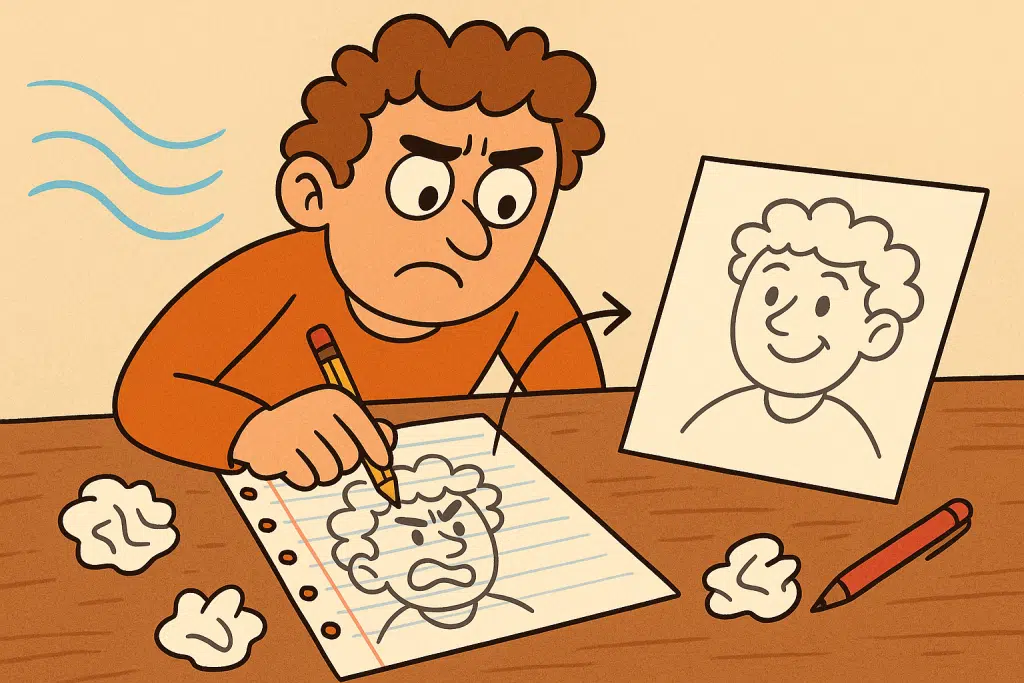When Drafts Are More Honest Than Edits
Isabella Lewis July 30, 2025
When Drafts Are More Honest Than Edits reflects a growing belief: the initial, messy draft holds truths that editing can mask. This guide unpacks why that happens—and how you can protect authenticity while refining work.

When Drafts Are More Honest Than Edits is becoming a rallying cry in creative writing circles. In an age of over-polished content, authors are beginning to realize that the rawness of an unfiltered draft can carry emotional depth, sincerity, and original voice that edits often wash away
Why Raw First Drafts Matter
1. Emotional Truth Beats Perfection
Messy first drafts often capture unfiltered emotion and energy. According to a recent examination, writing fast without worrying about polish lets your subconscious guide the narrative—revealing deeper emotional arcs later refined through revision. That raw connection to your own voice is hard to replicate once you start smoothing sentences.
2. Discovering Your Unique Voice
When you’re not focusing on getting every word right, you uncover patterns in tone, rhythm, and phrasing inherently yours. That’s how your unique style emerges—without mimicking someone else’s voice.
3. Completing the Work
Writers who insist on perfection often stall during drafting. Completing a messy first draft, even if rough, is essential for progress. Many authors find the draft‑then‑edit workflow more productive than editing as they go.
When Edits Can Mute Honesty
The Risk of Over-Editing
If you polish too early, you risk diluting the initial spark. Trying to craft the perfect sentence while drafting can interrupt the creative flow, turning vibrant ideas into lifeless prose.
Emotional Auto‑censorship
Editing during drafting may subconsciously filter tough or vulnerable scenes. Writers sometimes tone down honesty in early drafts because they anticipate criticism. Letting the draft breathe first preserves emotional honesty.
Editorial Pressure Can Misdirect
Feedback and edits from others—especially early—can push a writer to conform instead of staying authentic. Delaying significant edits prevents over-correction before the truth of your narrative shines through.
Emerging Trend: Valuing Draft Honesty
Professional writers and creative writing educators are increasingly championing the messy first draft:
- A March 2025 article highlights that exploratory drafting is powerful for capturing authentic voice and emotional layering later during revision.
- Writing instructors at universities emphasize the difference between pure revision and surface editing, urging students to revisit structure, argument, and organization rather than just polish grammar.
This outlook reframes the first draft not as disposable scribbles but as the emotional blueprint of your work.
Practical Guide: Fostering Draft Honesty Without Sacrificing Quality
Here’s how to balance honesty in drafts with effective editing:
Step 1: Write Fast, Unedited, Unfiltered
- Set a timer (e.g. 30-minute sprints) and resist editing anything—even typos.
- Accept that it will be messy. That’s intentional.
Step 2: Let It Sit Briefly
- Take a break of a few hours or a day. Fresh eyes help you separate emotional reaction from structural clarity.
Step 3: Read Through With Objectives
- First pass: identify what feels authentic and emotional. Note powerful passages to preserve.
- Second pass: flag structural gaps, plot holes, or missing research. Organize major revisions.
Step 4: Edit in Layers
Use a tiered approach:
- Structural editing—rethink architecture, flow, and purpose.
- Line editing—refine phrasing, pacing, voice.
- Proofreading—correct grammar, typos and small inconsistencies.
This mirrors academic revision principles but preserves the initial voice and sentiment.
Step 5: Get Feedback Later
Invite beta readers or editors to review after you’ve completed at least one round of revisions. That way feedback enhances rather than overrides your core message.
Benefits of Trusting the Draft
| Benefit | Why It Matters |
|---|---|
| Authentic voice preserved | Your true tone stays intact |
| Less writer’s block | Flow is uninterrupted by self‑criticism |
| Emotional resonance | Keeps vivid feeling that engages readers |
| Faster progress | You complete draft before polishing slows you down |
Trends and Context
This movement ties into broader shifts:
- AI‑assisted writing: Many writers lean on AI for mechanics, reserving emotional and creative work for human input. Trusting the draft keeps the ‘soul’ of writing intact.
- Creative pedagogy: Journalism and creative writing programs now encourage draft-first workflows, emphasizing revision not as cleaning but as deep rethinking.
- Productivity culture: Tools like NaNoWriMo reinforce drafting-first approaches to overcome perfectionism and build momentum.
When Edits Should Come In Early
While early drafts are great for capturing unfiltered thoughts, there are times when edits shouldn’t wait until the end.
If your writing depends on factual accuracy, like quoting research or stats, it’s better to verify those details as you go. Fixing a well-written but factually wrong paragraph later can be a total time-waster.
When you’re heading into a project where structure might shift, early edits can actually guide the process. Catching a weak outline or a missing section early can save you from rewriting huge chunks later.
And in cases like technical writing or user documentation, clarity is king. This isn’t the space to “just get it all out”—early editing ensures that instructions are clear, steps make sense, and the reader doesn’t rage-quit halfway through.
Bottom line? If accuracy, clarity, or structure are mission-critical, don’t be afraid to bring edits in early. It’s not selling out—it’s being smart.
Conclusion
“When Drafts Are More Honest Than Edits” isn’t just a clever phrase—it’s a truth every writer eventually bumps into. First drafts hold something special: raw thoughts, real emotions, and that unfiltered voice that editing often smooths out a little too much.
Of course, editing is necessary. It helps refine the message, clean up the chaos, and prepare your writing for the world. But if you jump into editing too early, you risk losing the very spark that made your words worth reading in the first place.
So here’s the real lesson: trust the mess. Let your first draft speak freely, without fear or filter. Then come back and shape it—but don’t edit the soul out of it.
References
- Thomson, P. (2014). Good academic writing – it’s about revision not editing. Retrieved from https://patthomson.net
- University of North Carolina Writing Center. (n.d.). Revising Drafts. Retrieved from https://writingcenter.unc.edu
- Berkun, S. (2024, July 2). How to revise a first draft. Retrieved from https://scottberkun.com







